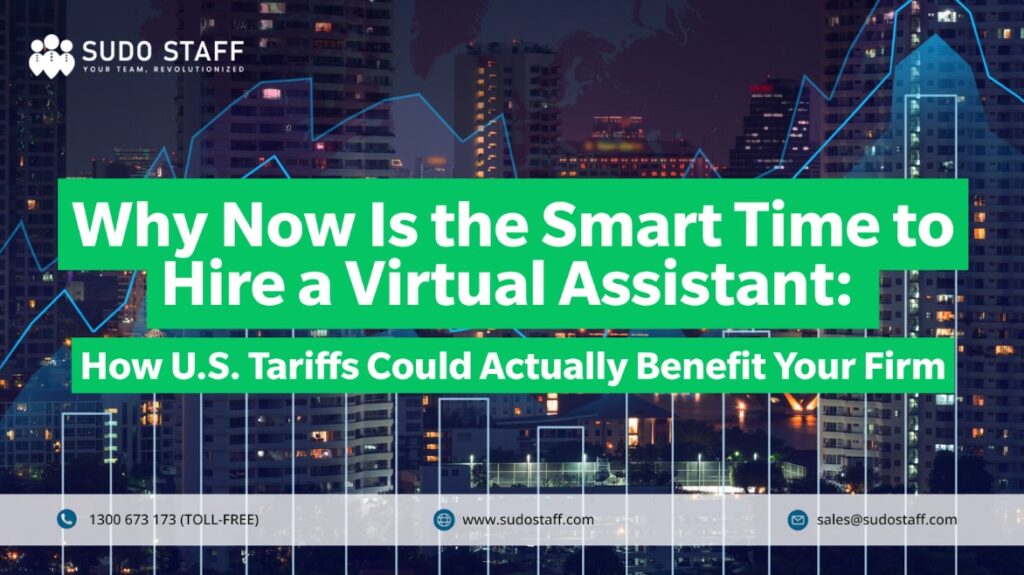With the recent announcement of U.S. tariffs on Australian exports, business leaders across the country are re-evaluating their strategies. While headlines focus on beef, metals, and other goods, the ripple effects are being felt far beyond the export market. Law and accounting firms are not immune to the pressures this creates—rising costs, tightened margins, and increased uncertainty are all part of the equation.
But here’s the upside: this moment presents a golden opportunity for firms to get smarter and leaner by leveraging remote workers and virtual assistants.
What Do the U.S. Tariffs Mean for Australian Firms?
While the tariffs are aimed at physical goods, their indirect impact is already making waves. Treasury analysis suggests a modest 0.2% hit to GDP and a 0.2 percentage point rise in inflation. Consumer prices are expected to climb, interest rates may shift, and markets are reacting with caution.
For law and accounting firms, these macroeconomic tremors can lead to:
- Higher operational costs (software, equipment, or even coffee supplies aren’t immune to inflation)
- Increased client pressure to reduce fees or offer more value
- The need to streamline staffing without compromising client service
This is where remote staffing steps in as not just a solution, but a strategic advantage.
Why Remote Support Makes Sense Right Now
In times of economic pressure, law and accounting firms need to stay agile. Virtual assistants and remote professionals allow firms to:
✅ Cut overhead costs – No desk, no office rent, no extra utilities
✅ Scale up or down easily – Add support during tax season, case surges, or project peaks
✅ Maintain high client service levels – With trained professionals handling admin, calls, bookkeeping, and more
✅ Access top-tier talent – Without being limited by geography or local wage expectations
You’re not just hiring help—you’re building resilience into your firm’s operations.
Especially Relevant for Legal and Accounting Workflows
The legal and financial sectors rely heavily on process-driven work—document preparation, appointment setting, invoicing, compliance checks, data entry, and client onboarding. These tasks are ideal for delegation to trained virtual staff.
Imagine freeing up your senior team to focus on high-value work like strategy, client relationships, and billable hours—all while your VA keeps the day-to-day humming.
Tariffs or Not, the Future Is Flexible
The shift to remote staffing isn’t just a reaction to short-term challenges—it’s a forward-thinking move. Law and accounting firms that adapt now will be better positioned to thrive in a more complex, cost-sensitive market.
So, while tariffs may shake up trade and trigger uncertainty, they also highlight the need for smarter resourcing. Remote workers and virtual assistants offer flexibility, stability, and a real ROI boost at a time when your firm might need it most.
Let the big economies play their game—your firm can play smarter. Contact us now for more details!
